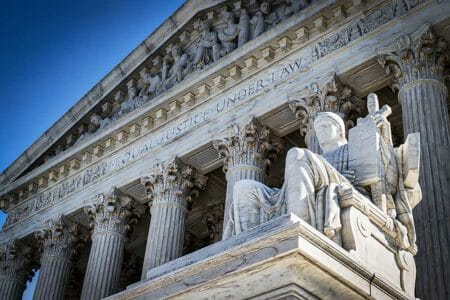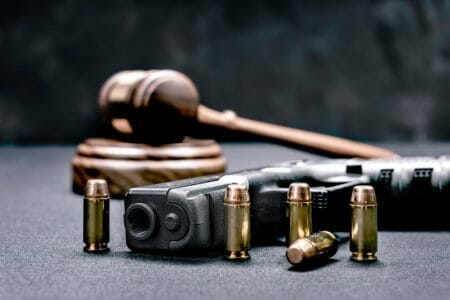H/T to The Weekly Reload Podcast. Please follow them online for more great 2A coverage.
Hawaii changed the rules after Bruen. Instead of allowing concealed carry on public-facing private property—think stores, restaurants, and their parking lots—unless the owner says “no,” Hawaii did the opposite. Now it’s banned unless the owner explicitly says “yes.”
Gun-rights attorney Alan Beck is asking the Supreme Court to put that genie back in the bottle.
This isn’t a niche fight. If almost no businesses post “guns allowed,” then a carry permit becomes a sidewalk-only pass. You can walk armed down the block, but you’re disarmed the moment you step into normal life. On Maui alone, petitioners estimate that more than 96% of publicly accessible land is off-limits once you layer in Hawaii’s long “sensitive places” list and this new default rule. That flips Bruen’s warning—sensitive places should be the exception, not the rule.
Beck’s Core Pitch, in Plain English
Beck’s strategy is simple: use Bruen as written. The State has to point to a historical tradition that’s meaningfully similar in the how and the why. Hawaii and the Ninth Circuit leaned on two old laws that don’t carry the load: a 1771 anti-poaching rule about trespass with long guns on land not open to the public, and an 1865 Louisiana “Black Code” aimed at disarming freedmen after the Civil War. Neither matches modern carry in a store that invites the public in, and neither adds up to a real “tradition.” Two outliers, decades apart, don’t rewrite the Second Amendment.
There’s also the practical reality. Most businesses don’t want to post political signs—pro or anti. In tourist hubs especially, owners would rather stay neutral than spark an online mob. So a “ban unless invited” default turns into a near-total carry blackout without the State ever saying “total ban” out loud. It’s a backdoor way to gut carry.
“What About Property Rights?”
This is the internet’s favorite objection, and it misses the point. Nothing in Beck’s ask forces businesses to allow guns. Owners keep their veto. If a shop says “no guns,” that’s their call, and it stays their call. The question is whether the State gets to criminalize carry across the board unless owners publicly “opt in” with a permission sign or personal invite.
The better analogy is everyday liberty. You don’t need a posted permission slip to bow your head and pray over lunch. If the café doesn’t like it, they can tell you to stop or to leave. Same with carry: the traditional rule is “allowed unless the owner says otherwise.” Hawaii flipped that. Beck is asking the Court to flip it back.
The History That Actually Matters
From the founding era forward, when private property is open to the public, visitors keep their normal liberties unless the owner says otherwise. People carried arms in ordinary life; in parts of colonial America, they were even expected to. There’s no credible tradition of telling citizens, “You’re disarmed in every shop and parking lot unless you find a rare proprietor willing to plant a ‘guns welcome’ flag.”
That’s why other courts have already pushed back on similar post-Bruen experiments in places like New York and New Jersey. The Ninth Circuit went the other way for Hawaii, creating the kind of split the Supreme Court tends to resolve.
Why This Case Isn’t “Small”
Some commentators call this a narrow question compared to, say, bans on common rifles. But day-to-day carry lives or dies on access to normal places. If you can’t lawfully carry into the grocery store, the pharmacy, the diner, the mall, or their parking lots, then the “right” becomes a technicality. You’re armed until you try to live your life. That’s not how constitutional rights are supposed to work.
What’s Not on the Table
To be clear: this case isn’t about forcing carry into private homes or private land that isn’t open to the public. It’s focused on public-facing private property—businesses that invite everyone in. And it isn’t about compelling businesses to say “guns allowed.” It’s about restoring the traditional default and leaving the decision where it belongs: with the owner, not the State.
What to Watch at the Supreme Court
Expect questions about “sensitive places” and whether Hawaii’s scheme swallows the rule. Look for the Justices to press the State on the how/why test under Bruen—especially the reliance on an anti-poaching trespass rule and a Reconstruction-era race-based code. And don’t be surprised if the Court weighs the real-world effect: a default that functionally erases carry in the places people actually go.
Why It Matters Beyond Hawaii
If Hawaii’s default-ban stands, other blue and purple states can copy-paste it and declare victory over carry without saying so out loud. If it falls, the Court will set a clear, workable standard: on public-facing private property, carry is allowed by default and owners can opt out. That protects both the Second Amendment and real property rights—no forced “guns welcome” signs, no statewide “ban unless invited” gimmicks.
Bottom Line
Bruen said to follow history and tradition. The tradition is simple: when a business opens its doors to the public, people keep their ordinary liberties unless the owner says otherwise. Hawaii’s law flips that and turns permits into paper. Beck’s argument asks the Court to do what it did in Bruen: apply the test honestly, respect the owner’s veto, and stop the State from using defaults to hollow out a right.
If the Justices agree, carry goes back to normal where it belongs—in everyday life, not just on the sidewalk.






Have you noticed? The left’s fight to keep guns out of our hands is getting more outlandish day by day? They are grasping at straws hoping they can implement laws and then keep them in place by forcing challenges to them and probably pushing court dates out to extend the length of their new unconstitutional law. Next would be the leftist judge determining what can be used in court and what can’t disemboweling the argument taking the legs out from underneath it, making the argument and case pointless. Then it is challenged again! This lawfare has got to stop. It… Read more »
““What About Property Rights?” “A well regulated Militia, being necessary to the security of a free State, the right of the people to keep and bear Arms, shall not be infringed.”Where in that statement does it say anything about property rights overruling the right to defend yourself?2A is absolute and applies to anything. The 1st amendment specifically only limits congress from passing laws, but SCOTUS has repeatedly said the 1st amendment applies not only to congress, not only to the states, but also public land and public businesses. So, why would 2A not be allowed the same application and be… Read more »
ALL tyrants need to swing.
Hopefully the Supreme Court will use this case to set limits on what exactly can be listed by states as a sensitive place, but more importantly detail the minimum amount of laws that have to be found to establish a “tradition” of firearms restriction that supports the law they want to pass. For example, they might decide that 10 laws or laws in place in over half the states meet the definition of an historical tradition. But this garbage of throwing out one regulation that isn’t even remotely similar is crap. They also need to indicate that racially discriminatory laws… Read more »
It doesn’t matter what the landowner wants or the storeowner if they merely lease the land/structure – if it’s open to the public the public can exercise their rights on/in it. Imagine if a store put up a sign that said “No Outward Displays of Religion: No Crosses, Stars of David, Yarmulkes, Veils, Burkas, Hijabs, Nun’s Habits, Clerical Collars, Tonsures, etc.” or “No Speaking, Writing, or Praying” or “Due Process Suspended Within”…
This is really about constitutionally recognized rights being evenly available to all people who are broadly invited in to a business. It does not matter if they flip the signs or not. If the business is not a private membership club then they can not make admission exceptions that violate constitutionally recognized rights when inviting the public in. It does not matter which right you are talking about. One right is no more right than the next right. Private business owners are welcome to say people may not come in as long as they say it to all people and… Read more »
all the 2nd amendment means to a lot of guys is being able to carry a gun where this is hardly any crime to get milk in a 7-11. they are totally wrong
We can bypass the issues of GFZ’s by going about our business CC. No one knows your armed and in most cases aren’t going to draw unwanted attention or alarm anyone either. Unless there’s a metal detector concealed is just that concealed.